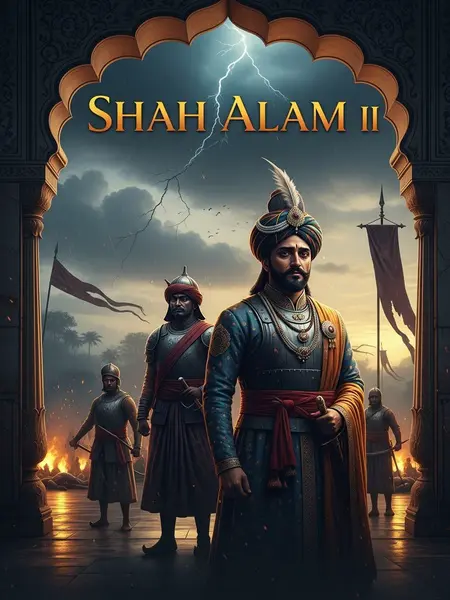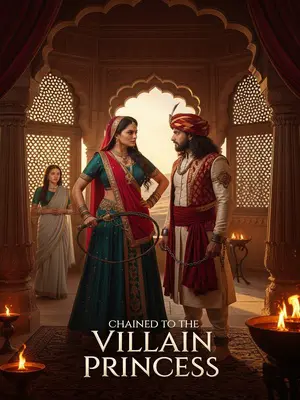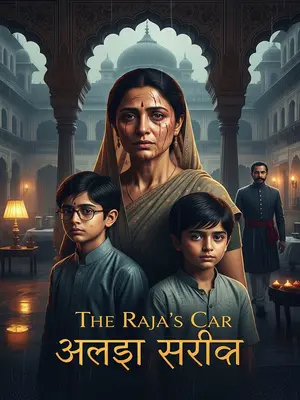Chapter 3: Honour and Humiliation
Faizullah Khan was full of confidence. He assembled a force of 14,000 men and had the experienced generals Raghav Singh and Zakir Hussain lead the troops directly into Burma, while he personally oversaw the front lines. He also issued proclamations, ordering local zamindars to cooperate.
In the bazaars, newsmongers shouted the names of these generals, recounting their earlier deeds in the Deccan and against the Marathas. As the soldiers marched out, wives and mothers followed them to the edge of the city, casting handfuls of rice for good luck, tying sacred threads around their wrists, each step a prayer that the drums of war would soon be replaced by wedding songs.
However, once battle was joined, the Mughal side again realised they had seriously underestimated the Burmese army's combat strength.
The monsoon clouds gathered thick and low as the Mughal vanguard entered Burma’s wild hills. The men soon found themselves in a nightmare: paths lost beneath tangled roots, food spoiled by jungle damp, and everywhere the sudden crack of musket fire from unseen foes. The Burmese seemed to melt into the landscape, their discipline unbroken, their courage terrifying.
In the Battle of Xin Jie (in present-day Kachin State, northern Burma) in December 1766, the Mughal army was routed by the Burmese, who wielded French-style naval guns and field artillery, suffering heavy casualties. Faizullah Khan, Zakir Hussain, and others fled back across the border in disgrace.
The retreat was a humiliation—horses floundered in the mud, and the cries of the wounded mingled with the howling of jackals at night. In the villages of Assam, people watched with wide eyes as the battered survivors limped home, their uniforms in tatters, their pride even more so. A sepoy, his arm bandaged and bloodied, clutched a tattered talisman from home, whispering a prayer to Hanuman for strength. The Mughal flag, once a symbol of invincibility, now seemed to droop with the weight of defeat.
Afterwards, the enraged Shah Alam II had Faizullah Khan, Zakir Hussain, and others arrested and brought to Delhi, where they were executed.
Delhi’s streets buzzed with rumours as soldiers escorted the disgraced generals through Chandni Chowk. Some said the Emperor wept in private; others claimed he was more stone than man, unmoved by the pleas for mercy. The executions were swift, but the sting of defeat would linger in the city’s memory.
In April 1767, Shah Alam II dispatched his favoured general, the Nawab of Awadh, Shuja-ud-Daula, to lead a southern campaign against Burma. Shuja-ud-Daula had previously achieved repeated military successes in the campaigns to pacify the Rohillas and in suppressing the Marathas in the south.
The selection of Shuja-ud-Daula brought a flicker of hope. In Lucknow, his name was synonymous with courage, his court renowned for both poetry and steel. The people of Awadh, from the ghats of the Gomti to the markets of Faizabad, prayed for his victory and sent him off with garlands and verses.
Shah Alam II gave Shuja-ud-Daula 3,000 elite cavalry, 10,000 matchlock-wielding infantry transferred from Bengal—who were famed for their combat prowess—and coordinated with Mughal field artillery units.
The Mughal camp swelled with confidence as the new army was assembled: war elephants decked in gold, the infantry in crisp uniforms, the cavalry’s horses groomed to a sheen. In the early dawn, with the dhols beating and priests chanting blessings, the great host rolled eastward, their banners catching the first rays of sun.
Shah Alam II had great confidence in this force.
The Emperor’s faith in Shuja-ud-Daula was absolute. Even the old courtiers, their hair gone white with age, whispered that the tide had finally turned, and that this time the Burmese would taste defeat on their own soil.
Shuja-ud-Daula did not disappoint at first. His army advanced smoothly, defeating Burmese resistance along the way, and at their peak, marched straight toward the Burmese capital, Ava.
The march was a spectacle—villagers along the route gathered to watch as the imperial columns passed, and bards composed couplets about Shuja’s swift advance. In the officers’ tents at night, there was laughter, music, and bold talk of victory.
The Burmese king Hsinbyushin urgently recalled 30,000 troops from Siam. They avoided the strongholds and struck at the weak points, cutting off Shuja-ud-Daula's supply lines. The Mughal army soon ran out of provisions.
But in war, fate is as fickle as the monsoon. The Burmese, swift as ever, struck not at the swords but at the stomach—sabotaging supply lines, burning storehouses, and sending the Mughal soldiers into hunger and confusion. In the damp heat of the jungle, even the bravest sepoy faltered when his belly was empty.
A month later, Shuja-ud-Daula's army, in retreat, was surrounded by the Burmese near the Assam border. Shuja-ud-Daula chose to personally cover the withdrawal, was defeated, and killed in action.
The news of his death swept through the empire like a dust storm. In Lucknow, women tore their dupattas and wept in the street. In Delhi, the Emperor’s hands shook as he clutched the dispatch. The paan slipped from his lips, staining his white kurta a deep red. Across the north, from the courtyards of Agra to the riverbanks of Patna, the people mourned a true son of Hindustan.
When the news arrived, the entire country was shocked. Shah Alam II was both astonished and enraged.
Never had the Mughal throne seemed so vulnerable. In the Red Fort, the marble floors still cool from the night’s dew, the usual music fell silent; even the pigeons seemed to sense a change in the air. The Emperor’s rage was legendary—his courtiers quailed as he paced the marble floors, his words laced with threats and despair. The scent of jasmine garlands hung heavy in the air, a stark contrast to the tension within.
He had another Mughal commander, Mirza Irfan, who had failed in his rescue attempt, executed by slow slicing—making him the only high official in nearly 300 years of Mughal history to be executed in this manner—and then executed Mirza Irfan's entire family as well.
Delhi gasped at the brutality. Even the city’s most jaded chroniclers could scarcely believe it: the slow slicing, a punishment reserved for the most heinous traitors, now meted out to a general of the empire. The city’s poets lamented the cruelty, and mothers hid their children when soldiers passed by, the fear of imperial anger settling over the city like smog in winter.







